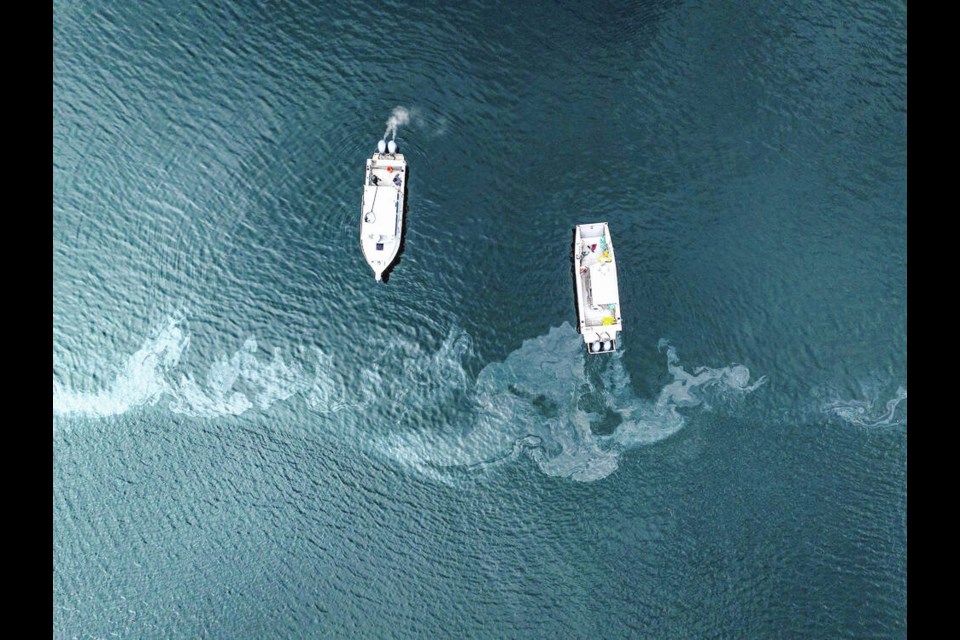Last weekend’s diesel spill at an open-net pen salmon farm near Zeballos has been “absolutely devastating” to the environment, and is a reminder of the threat posed by fish farms, says a councillor with the nearby Nuchatlaht Tribe.
Erick Michael said 8,500 litres of fuel were released — enough to fill 85 diesel-truck tanks.
The Nuchatlaht Tribe is calling on the federal and provincial governments to expedite the Salmon Aquaculture Transition Plan, which is intended to direct a transition away from open-net pen salmon aquaculture in –°¿∂ ”∆µ, with First Nations among the groups to be consulted.
The federal government has said open-net pen salmon farming will be banned in –°¿∂ ”∆µ coastal waters by June 30, 2029.
Nuchatlaht lands and resources manager Roger Dunlop said fuel from the diesel spill has seeped into the rocks and sediment around Steamer Point. Earlier this week, diesel was seen moving into an area “busy with wildlife — marbled murrelets, sea ducks, sea otters and a Steller’s sea lion,” he said in a statement. “At Steamer Point we could smell the diesel in the air.”
The spill into Esperanza Inlet occurred during the transfer of fuel as a result of what the fish farm’s owner, Norway-based Grieg Seafood, called human error.
The company, which runs 22 fish farms and a hatchery in –°¿∂ ”∆µ, hired Strategic Natural Resource Consultants to help in its response to the spill, and said it will look into its operations to make sure nothing similar happens again.
Nuchatlaht guardian and fisheries technician Judae Smith said she is afraid to eat anything from the ocean right now. “It’s hard to imagine how anyone could ever clean up this kind of toxic damage,” she said. “It permeates everything and so much damage has already been done.”
He said he is “heartbroken” thinking that orca Brave Little Hunter, an orphaned calf that was in the area for a month after its pregnant mother died in March, might swim through the affected area.
Mellissa Jack, a Nuchatlaht councillor, said the spill will have a lasting impact on food sources.
“There needs to be accountability for the gravity of what has happened and understanding that we need to do everything that we can to protect the territory for generations to come.”
The nation said it appreciates the “countless hours” that many people have put into dealing with the spill.
The incident commander for the spill response, which has brought together Grieg Seafood, the –°¿∂ ”∆µ Environment Ministry, Environment Canada and area First Nations, issued a statement saying protecting marine wildlife and assessing shoreline impacts are among the priorities in responding to what is being called the Lutes Creek spill.
Drones are being used to help study the impact of the fuel’s spread, the statement said, while a marine mammal unit was deployed to survey the area.
It said no marine mammals were observed in close proximity to the spill site, and all animals recorded appeared healthy, with no signs of distress.
Field crews continue to deploy absorbent booms at identified priority areas, it said.
Nuchatlaht Chief Jordan Michael said the nation will no longer tolerate “force-fed” decisions to keep fish farms in its territory. “I’m extremely upset that these fish farms are still even here despite our efforts to be rid of them,” he said.




